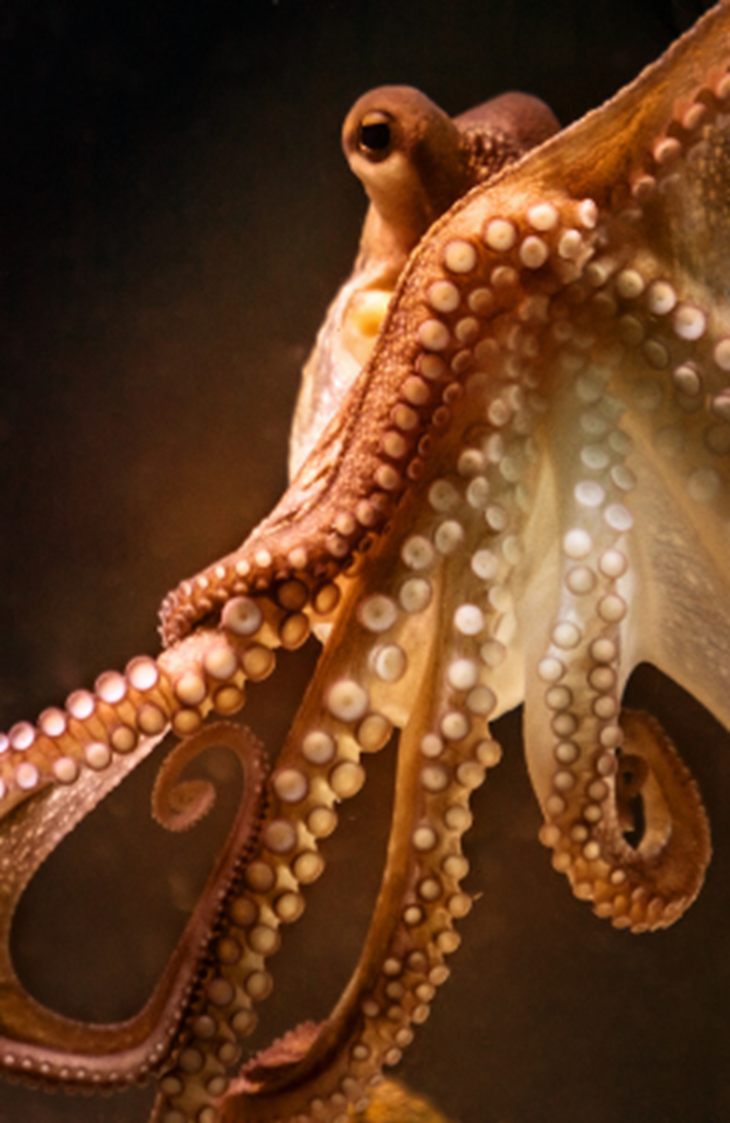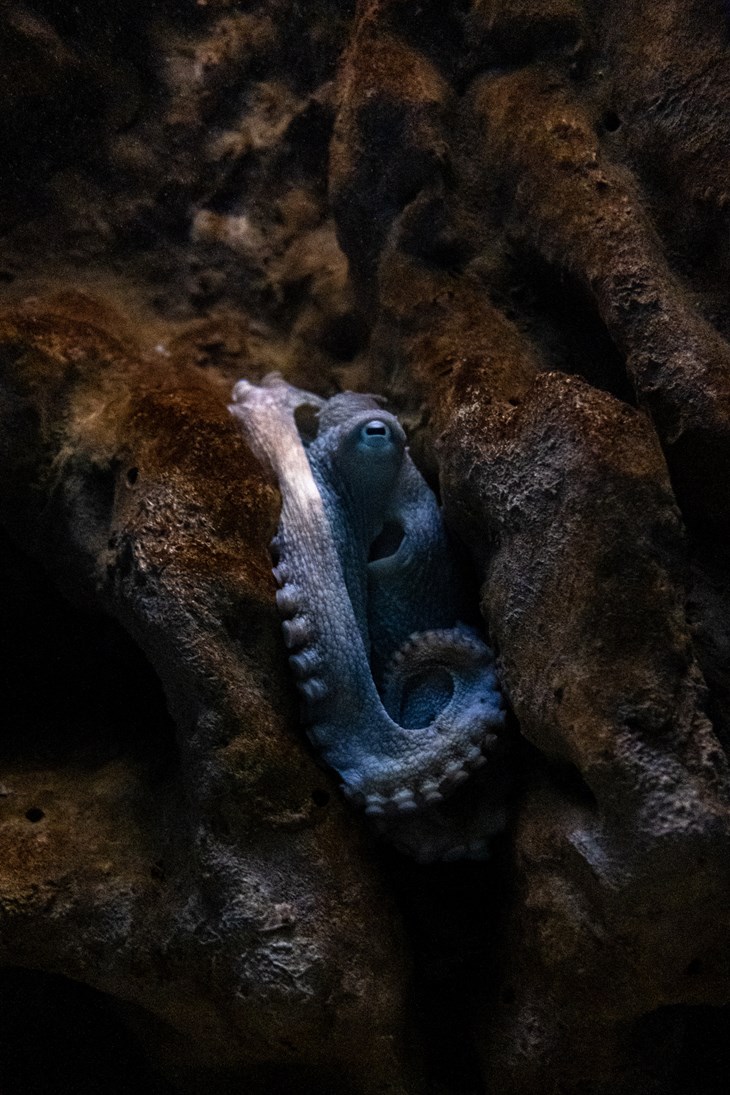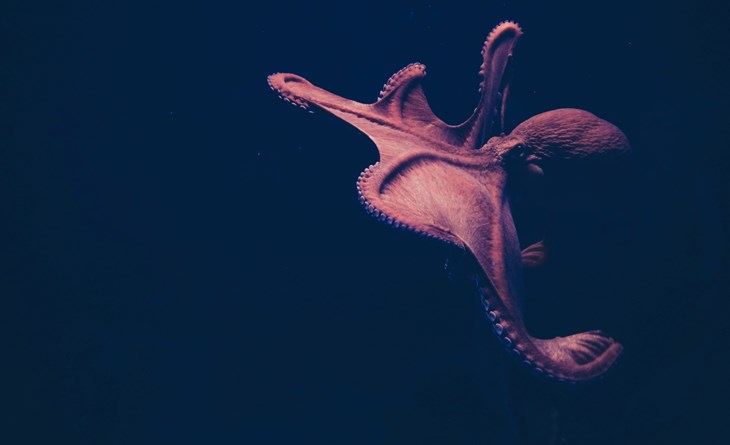10/7/2024
World Octopus Day, marked annually on October 8 to honor these eight-armed creatures, serves as a reminder to recognize the mysticism, intelligence and overall beauty of one of nature's most beloved animals.

However, a day when octopuses should be celebrated has become a call to protect them from horrible plans of factory farming. In the Canary Islands, seafood company Nueva Pescanova is planning to open the world's first-ever octopus factory farm, despite worldwide opposition and pleas from the public and scientists alike to scrap the farm.
Here are 8 reasons why octopuses should NEVER be farmed.
1. Highly Intelligent
Octopuses have problem-solving abilities, use tools and show signs of both short and long-term memory. They camouflage themselves for protection by mimicking their surroundings. Octopuses even like to play and decorate their shelters.
2. Solitary Nature
Octopuses naturally prefer solitude, making confinement stressful and unnatural.
If forced to live in cramped farming conditions, they would become so aggressive and stressed that many of them would begin self-mutilating or attacking and killing one another.
3. Emotional Depth
Studies show that octopuses experience emotions like joy and fear. One of the best displays of this emotional range is shown in the Oscar-award-winning documentary, My Octopus Teacher.

4. Sensitive to Pain
Their complex nervous systems make them capable of feeling pain.
At Nueva Pescanova's proposed farm, octopuses would be cruelly killed by ice slurry without pre-stunning - an inhumane method that causes pain, fear and suffering.
5. Short Lifespan
Octopuses have short lifespans of 1-2 years, complicating farming efforts.
6. Environmental Impact
Farming octopuses requires significant resources, contributing to environmental degradation.

In May, documents revealed that Nueva Pescanova failed to consider multiple significant threats to wildlife, the environment, and public health with its proposed farm.
7. Dietary Needs
Farmed octopuses would be fed fishmeal and fish oil, which are highly unsustainable.
8. Animal Welfare
Given all of these factors, farming octopuses would be unethical. Limiting their worlds to tiny tanks and not allowing them the freedom they need to roam, hunt, or mate is cruel by any standards.
These points make it clear that octopus farming is not a morally justifiable practice.
Take Action
We should be celebrating these intelligent wild animals rather than planning ways to exploit them in underwater factory farms.
Take action and ask the Spanish government to stop octopus farming now.
Donate now to stop octopus farming.
